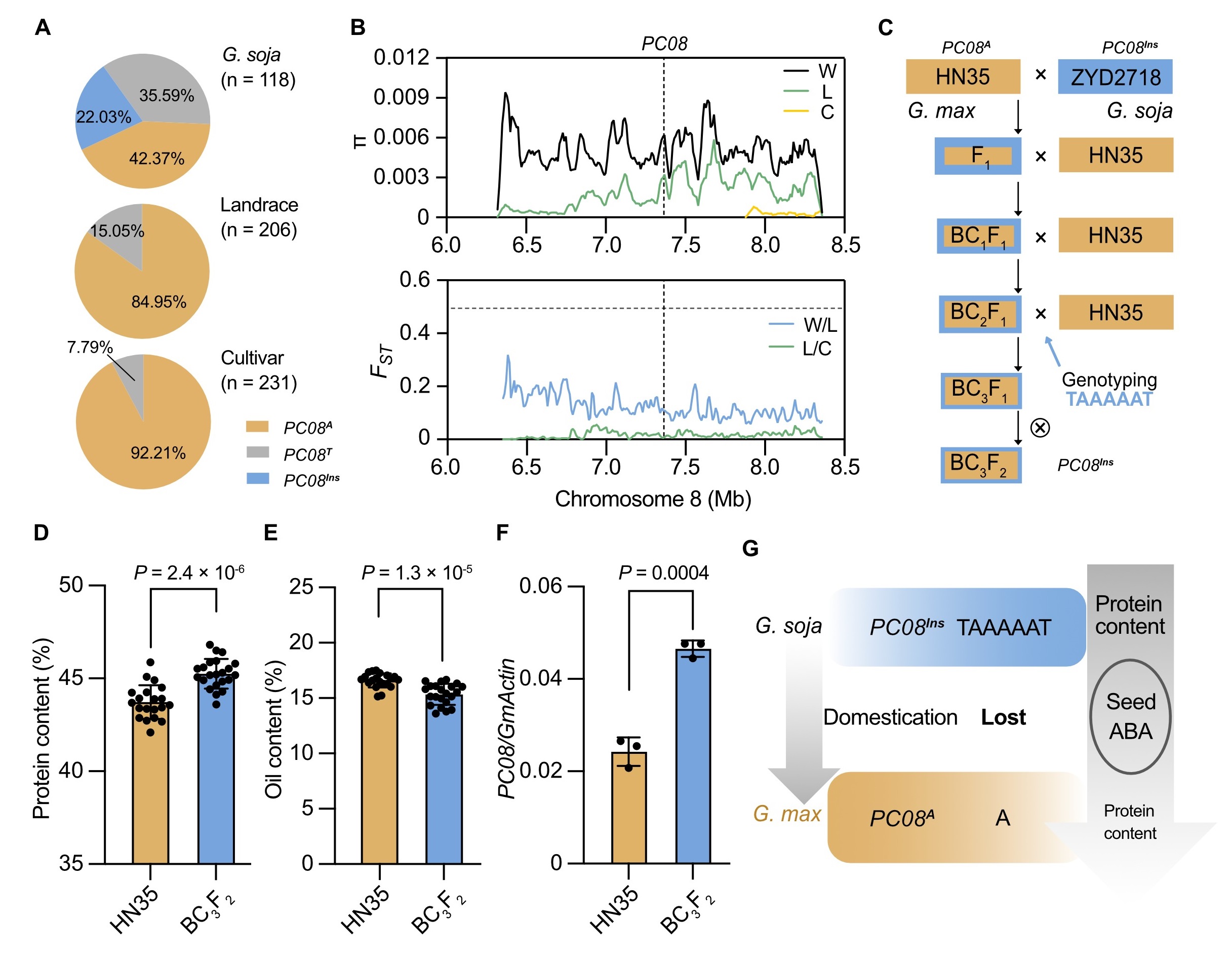Researchers discover an untapped allele under high seed protein content from wild soybeans
Abstract
A research team led by Prof. HOU Xingliang from the South China Botanical Garden of the Chinese Academy of Sciences has employed Genome-wide Association Studies (GWAS) to identify a rare allele lost in soybean domestication controlling seed protein content.
Main Text
Domesticating wild plants into crops was a pivotal breakthrough in human history, yet key beneficial traits were often lost during this process. Soybean (Glycine max [L.] Merr.) serves as the major source of plant-based protein for both livestock and human nutrition, thus higher seed protein content is desired. However, modern soybean cultivars exhibit lower seed protein content (30–40%) compared to their wild progenitors, wild soybeans (Glycine soja) (50–60%). Genes controlling high seed protein content in the soybean ancestors remain to be uncovered.
A research team led by Prof. HOU Xingliang from the South China Botanical Garden, Chinese Academy of Sciences, has published their findings in Proceedings of the National Academy of Sciences of the United States of America. Through genome-wide association analysis on seed protein content in soybean natural population, the team pinpointed a rare natural allele of PC08 (Protein Contributor 08) from wild soybeans that enhances seed protein levels but was lost during soybean domestication.
Functional analysis revealed the role of PC08 in storage protein accumulation. The natural variation from wild soybeans harbors a short insertion in its promoter (PC08Ins) elevates gene expression, increasing seed ABA levels and promoting seed storage protein accumulation.
Population genetics analysis confirmed that the high-protein haplotype PC08Ins exists only in wild soybeans and was not retained during domestication. By introgressing PC08Ins into a cultivated soybean variety Hei Nong 35, the researchers obtained backcrossed soybeans with significantly increased seed protein content, demonstrating the promising potential of PC08 for molecular breeding aimed at boosting soybean seed protein content.
This study was supported by the National Key Research and Development Program of China, and the National Natural Science Foundation of China, and the Funding by Science and Technology Projects in Guangzhou. Article links: https://www.pnas.org/doi/10.1073/pnas.2508709122

Figure. A wild allele of PC08 lost during soybean domestication contribute to seed protein content in cultivar.
File Download: